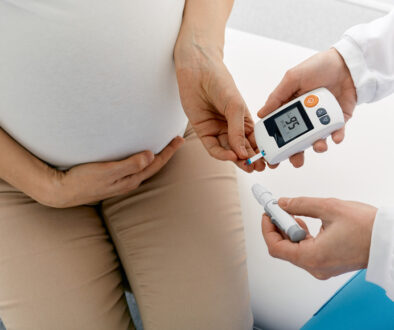Pregnant and Nauseated? Don’t Suffer!
Reports indicate that upwards of 50-75% of women will suffer from nausea and/or vomiting predominately during the first 10 weeks of pregnancy. The cause is unclear, but fortunately only .3-1% of women will advance to a potentially morbid state called Hyperemesis Gravidarum, which can potentially cause significant health issues for the mother.
A pregnant patient should weigh the ramifications of persistent nausea, which logically include fatigue, lack of well-being, and emotional stress against the potential risks of medications which can alleviate the nausea (McCormack). There are studies which indicate mental distress caused by nausea can persist long after the nausea subsides.
To date there is a vast amount of experience with certain antiemetic (anti-nausea) medications, which have no documented ill effects on the developing fetus. This is a suggested list of medications, published by ACOG (The American College of OB-GYN), which studies have shown to be effective:
- Over the counter: Vit B6 10-25 mg taken regularly every 8 hours. Adding Doxylamine (Brand name Unisom) 12.5 mg, 3 times daily can be very effective. This combination was extensively studied in 2000, and it was found to reduce nausea by 70%. Other antihistamines such as Dramamine, Bonine, and Benadryl can also be effective.
- Ginger, fresh or in capsule form, has been shown in double blind studies to provide relief. A diet low in carbohydrates and rich in protein can be helpful as well.
- Acupressure bands: Studies show inconsistent results
- Both Promethazine (Phenergan) and Ondansetron (Zofran) have been shown to be very effective with no adverse effects on the fetus. Ondansetron is less sedating.
- Reglan (Metoclopramide) and Compazine (Prochlorperazine) are also effective agents with no known adverse effects on the fetus.
Take home message: Nausea in pregnancy can be debilitating both physically and mentally. There are many safe and effective products for this problem and there is no reason for the patient to suffer!
McCormack, D., Scott-Heyes, G., McCuster, C.G. (2001). The impact of hyperemesis gravidarum on maternal mental health and maternal–fetal attachment. Journal of Psychosomatic Obstetrics and Gynecology, Vol. 32, No. 2; 79-87.




